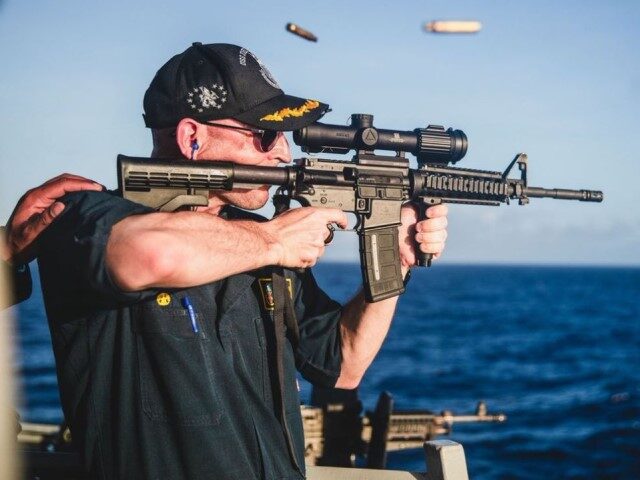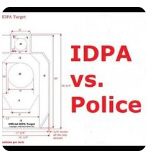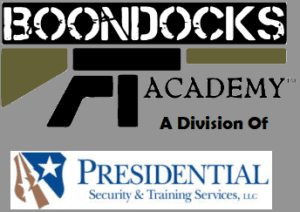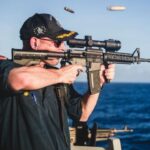Are Police & Military the “Experts” the News Media Claim?

After every major Mass Shooting event, pro 2A supporters will encourage the public to carry a gun. The anti 2A crowed says more guns will just lead to more blood in the streets, and guns should only be trusted in the hands of well trained military and law enforcement. But are police and military really “experts” when it comes to firearms?
The above image was posted on the Navy’s official social media page, quoting “From engaging in practice gun shoots, conducting maintenance, testing fuel purity, and participating in sea and anchor details, the U.S. Navy is always ready to serve and protect.” The image however showed a rifle with the scope mounted backward, and the Commander using a very unorthodox shoulder mount to try and see through the scope.

I had barely removed my palm from my face and stopped shaking my head when another post popped up on social media feed comparing police to recreational IDPA shooters. The 3 Minute Video reveals that over 70% of law enforcement officers were ranked as novices on an IDPA 5×5 handgun qualification standard. SWAT officers faired slightly better with only 33% scoring at a novice level, but there were NO expert rankings out of any of the groups studied.
These numbers may be shocking to many, but they mirror what I have seen in my training courses over the years. Fully 70-80% of the military and police officers that have taken one of my instructor certification courses could not pass the shooting qualifications with an agency issued firearm. Most would eventually pass if they could swallow their pride and accepted instruction to complete the course of fire. Posts like this are not meant to disparage our military and law enforcement, but to bring attention to the issues surrounding the training they receive. Decades of budget cuts and bureaucracy have lead to a reduction and stagnation in training standards. This has been exasperated even more with the “defund the police” movement and the lowering of standards necessary just to keep boots on the ground in most police departments across the country.
Unfortunately, the same is true for some instructors who rely solely on their credentials issued by organizations like NRA and USCCA to tout themselves as “Experts”. For those seeking expert advice on firearms and training it can be confusing on who to listen to. If you would like more information on who to trust, I encourage you to read “Influencer Vs. Expert: How to know who to trust for advice on firearms and self-defense!“

